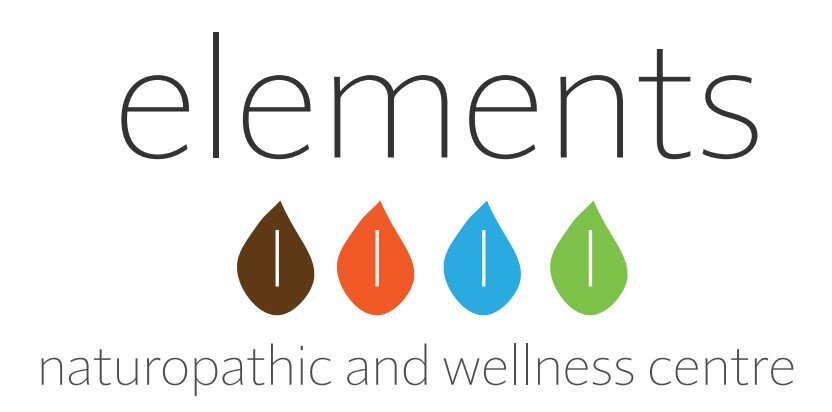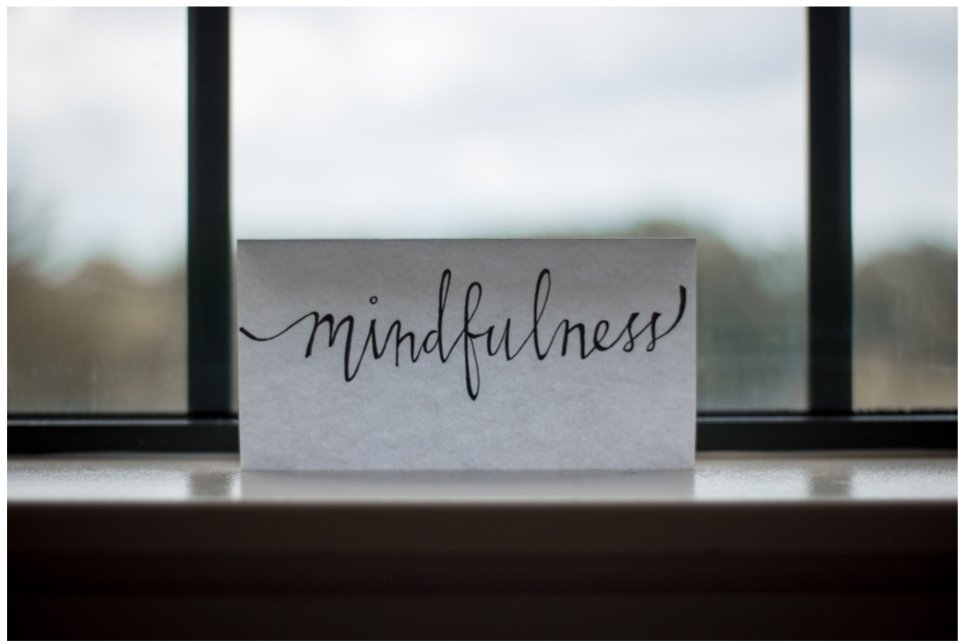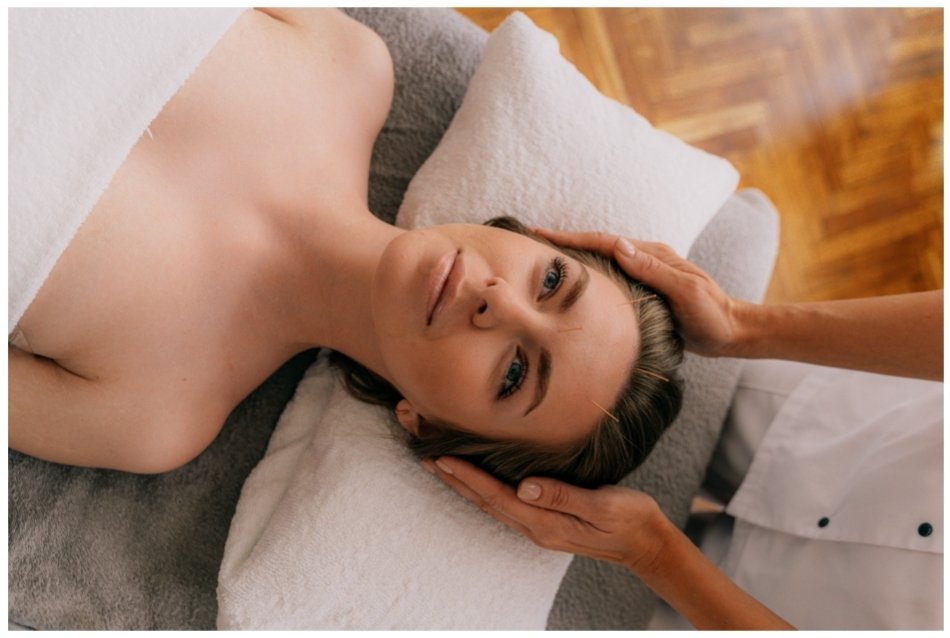How to treat the root cause of your anxiety (and overcome it) with Naturopathic Medicine.
We all, at some point in our lives, experience anxiety. Some more often than others. But what exactly is anxiety? Why do so many people have it, and what can we do to alleviate it?
First let’s define it.
Webster’s dictionary:
Apprehensive uneasiness or nervousness usually over an impending or anticipated ill: a state of being anxious.
or
Fear or nervousness about what might happen
Now that we have a definition we should know when this feeling, experience or state becomes a disorder.
For that we will look at the Diagnostic and Statistical Manual of Mental Disorders (DSM-5):
We also use the GAD-7 as a diagnostic tool to assess for an anxiety disorder. When a score of 10 or higher is recorded this assessment tool has an 89% sensitivity and 82% specificity for accuracy. This roughly means that 89% of the time someone is positively scored as having anxiety, they actually have it and 82% of the time that someone is scored as not having anxiety, they actually don’t have it.
https://www.mdcalc.com/gad-7-general-anxiety-disorder-7
Of course, there is more than just one type of anxiety. Sometimes the focus of one’s anxiety may be a certain situation or circumstance. Here is a short list of some of the most common anxiety disorders:
• Social anxiety disorder
• Panic disorder
• Specific phobias
• Separation anxiety disorder
• Agoraphobia
Although many of the ideas and solutions written here do apply to all types of anxiety disorders, each individual disorder has nuances in how it can be treated, which is beyond the scope of this article. I will be focusing mainly on generalized anxiety disorder to keep things simple from here on.
Now that you have a definition and can see how anxiety is classified and assessed by scientific research and the conventional medical system, I will share my personal opinions and beliefs on this condition.
Be prepared, you might find this controversial, upsetting and even a bit uncomfortable. However my goal is to enlighten you on why I believe anxiety is so prevalent, yet treatable.
The unpleasant symptoms of anxiety arise because we are trying to avoid something instead of facing it head on. It is an issue of bravery, lack of self-confidence, inexperience, unpreparedness, parenting styles, lack of quality relationships, taking on more than you can handle, issues with addiction, poor diet and nutritional status, environment and genetics.
The dominant emotion that resides with anxiety is fear. That fear, can be intense as in panic disorders or it can be mild, accompanied with feelings of being uncomfortable and restless.
As I mentioned, we all experience anxiety. This is inevitable. How we handle anxiety and our ability to handle anxiety in the future is dependent on how much mindfulness we bring to these events. The mind’s natural instinct is usually to avoid certain experiences that we know have brought us anxiety, discomfort and pain in the past. We often don’t even want to think about them because that can bring on anxiety itself. However, life usually doesn’t unfold in ways that cater to our insecurities. Avoiding things as a coping mechanism and strategy will likely do more harm than good in the long run. When I think of a skill that involves the mind, such as facing anxiety, I always like to compare it to exercise. When you stress a muscle in a controlled and progressive fashion it will grow and become stronger. The next time you exercise you are able to lift more weight. The same goes with our ability to handle stressors. If we can find a way to expose ourselves to something that causes anxiety in a controlled and progressive manner, we can increase our tolerance to the stressors, thereby reducing the anxiety symptoms we would typically experience. This is also known as exposure therapy.
Becoming aware of your anxiety and introducing mindfulness
The first step is to understand your triggers. It may help to make a list. Collect as much information as you can on the situations that trigger your anxiety. If you know what causes your anxiety you will have a much easier time being prepared for it, which in itself will have an effect on its reduction. Next you need to recognize and understand your symptoms. When you feel anxiety coming on start labelling the symptoms you are experiencing. For example, say to yourself: My mind is racing with thoughts, my heart is beating fast, my muscles are tensed, my breath rate is increasing and so on. Once we label the discomfort we are having and keep track of it, it makes it much easier to manage. If we gave each symptom a value of 10 points of discomfort, bringing mindfulness and labelling them allow us to deal with it as 10 + 10 + 10 + 10 = 40. That would be 40 points of discomfort. Now without mindfulness we would experience this as 10 x 10 x 10 x 10 = 10,000 points of discomfort.
After recognizing you are in an anxious state and have kept track of your symptoms, you can begin to implement strategies to lessen them. Three things I recommend are to slow down your breath, relax your muscles and calm your thoughts. You can start by counting the seconds of your inhalation, exhalation and the time between breaths. There are many different strategies that can work. Box breathing is an example of this. You breathe in for 5 seconds, hold for 5 seconds, breathe out for 5 seconds and hold for 5 seconds and repeat. Other strategies may have you exhale a little longer than you inhale in order to slow your breath and heart rate. Next, be aware of where you are holding tension in your body. Scan your body for muscle tension. A couple common spots would be the trapezius muscles (shoulders) and your jaw. If you have tension in these areas, exhale your breath to initiate the relaxation of these or other areas of tension. Once you’ve managed to employ these techniques to physically slow down and relax the body, you can then begin to coach yourself with positive affirmations to remind yourself that you have the capability to handle the situation you are in that is causing anxiety. This last part is challenging and you may need some help working with a professional to get you there.
Why do I have anxiety?
It may be helpful to some people to understand why they have anxiety in the first place. Developmental psychologist Diana Baumrind made famous her theory of parenting styles and how they affect children. Below is an example of her theory from the 1960’s.
Children who were raised with an authoritarian parenting style are the most likely to develop anxiety. They also tend to have poorer social skills than other children. Children of the neglectful parenting style are also likely to develop anxiety but less so than children raised with an authoritarian style of parenting. A possible theory is that authoritarian parents pass on their anxieties to their children. https://doi.org/10.21500/20112084.4704
Now let’s look at how certain factors can affect the biological aspects of anxiety. We will begin with stress. When we experience stress, our bodies release hormones called cortisol and epinephrine. These are our fight or flight hormones that prepare the body for action. One of the things these hormones do is to tell the body to release glucose (sugar) into the blood stream. Vitamins and minerals are also used up by the body to facilitate this and other reactions. With chronic stress, we end up depleting our bodies’ stores of nutrients, which doesn’t necessarily cause anxiety but may impact our ability to deal with it. The same can be said for having a poor diet. Therefore, it is important to take into account nutrition and stress in order to optimize your resources for dealing with anxiety. Sleep quality and exercise are also important factors to consider in this regard.
It is also important to address addiction and how it relates to anxiety. Many people have an addiction to something. If it’s not tobacco, drugs or alcohol, it could be coffee, sugar, television, gambling, video games, or even our own stress hormones. What happens with addiction is that we have withdrawal symptoms. These repetitive up and down patterns take their toll on the body and further deplete our bodies’ resources. We also can experience anxiety when we can’t, or perceive we can’t, get our desired vice. For someone who already has anxiety, this can compound its negative effects. The tragic irony here is that people with anxiety are more likely to engage in addictive behaviours as a way to cope with their anxiety in the first place. Understanding your triggers and breaking down the feelings and emotions that your addictions give you are the keys to replacing the habit with something healthier that serves you better, while still feeling good.
Next, I will discuss nature vs nurture or more specifically, environment and genetics. Environment is a big term that can account for many factors. I think most of us realize by now that being indoors all day in a fluorescent-lit room sitting at a desk is much worse for our mental health than getting out in nature. In fact, the Japanese have a term called shinrin-yoku, which translates to forest bathing. Essentially, this means spending time in nature. Some doctors will actually prescribe this to patients for mental, as well as physical health. Our environment can also include the chemicals we are exposed to and the people around us. If we are surrounded by anxious or demanding people it’s likely that over time it will have an effect on us. It is important to develop healthy boundaries so as not to let others drain our resources and expose ourselves to unnecessary stress. Genetics and family history do play a factor in anxiety disorders, however, it is not a guarantee. Some people may naturally have a more active nervous system that is sensitive to stressors. Alternatively, they may have a deregulation of serotonin and other neurotransmitters that would cause the disease. Some people that suffer from anxiety may have no psychosocial predisposing factors for their anxiety and do require medical intervention, however it is possible that certain events such as a trauma could lead to the expression of the disorder.
It is also important to note that certain medical conditions, as well as medications, may induce anxiety symptoms and your medical professional should help you rules those out.
Naturopathic Treatment Options
Beyond understanding causes and prevention strategies, naturopathic medicine provides a myriad of treatments for anxiety. Nutrition and nutraceuticals, botanicals, Traditional Chinese Medicine (acupuncture), positive health psychology, and lifestyle counselling are the modalities I utilize when treating this condition.
Feeling balanced and centred are key to controlling anxiety. Utilizing nutrition is essential to this, especially when it comes to blood sugar regulation. When blood sugar is too low the body will release epinephrine and cortisol so that glucose is released in the blood stream. This is the same neurotransmitter released during the fight or flight response, which can mimic symptoms of anxiety. If you are eating sugary foods too often, your blood levels will fluctuate at too high a rate. Caffeine (coffee) can also have this effect. Even certain food allergies may be a perpetuating factor for symptoms of anxiety. It can be helpful to eat well balanced meals containing sufficient amounts of fat, protein and carbohydrates at each meal in order to slow the release of glucose into the blood steam. Nutrient deficiencies may also need to be addressed with laboratory testing. Deficiencies in B vitamins (especially B3 and B12), Omega-3 fatty acids, and magnesium may lead to increased symptoms of anxiety. GABA is another nutraceutical that works by inhibiting activity in the central nervous system.
Botanicals are another option for added support when treating anxiety. Herbs such as lavender, valerian and passionflower have properties that calm the nervous system and provide minor sedation. You may have heard the term the gut-brain connection or phrases like go with your gut. This is because there is a high percentage of the body’s nerves found here, which communicate directly to the brain and account for much of the body’s serotonin production. During an acute anxiety attack the sympathetic nervous system (fight or flight) is triggered and by using bitter herbs it can signal the nerves in your stomach to switch from the sympathetic nervous system to the parasympathetic nervous system (rest and digest), helping to reverse the unwanted symptoms.
Acupuncture is one of the main tools used in Traditional Chinese Medicine. It utilizes mapped out meridians or channels where energy (Qi) flows in the body, most often labelled by an organ. Anxiety is characterized as a dysfunction of the heart channel. Thin needles are inserted into the body where the location is determined by the individual’s unique presentation. The needles are often left in place between 15 and 45 minutes. In addition to acupuncture’s ability to restore the free flow of Qi, either by revitalizing it or removing blockages, I’ve observed that acupuncture helps patients who are either overworked and/or have high energy be able to calm down and relax. This is important because it allows the patient to be able to heal as it slows the release of the stress hormones that they are overproducing. I find this is a good time to introduce meditation to my patients and I often pair acupuncture with a guided meditation. This may be a specific meditation to work on things such as issues with self esteem and confidence or it may be a more general meditation focused on mindfulness and equanimity. This combination treatment is my favourite treatment for treating anxiety, as I find it provides the space for deep work to be done and I have seen some dramatic results with my patients.
Positive health psychology is nonnegotiable when treating anxiety. It is crucial for patients to attune their beliefs in order to facilitate healing if they suffer from negative thinking. In fact, any patient can benefit from this modality. Often, patients with anxiety have developed certain beliefs and attitudes about themselves that limit their success and health. This can be developed by poor parenting, lack of a healthy social network or traumatic events. Patients can get so wrapped up in their own stories of who they are that it doesn’t leave room for different outlooks and positive changes. By motivational interviewing and listening empathetically to the patient, I am able to help identify ways for patients to reframe their situation in a way that allows them to succeed with their health goals.
Like positive health psychology, lifestyle counselling is necessary for all patients. It is the root of what we do as naturopathic doctors and it focuses on the foundations of health. In particular, this includes advice around exercise, nutrition, sleep and stress management. These components are the base factors for better health and should be addressed, if possible, before any other treatment is recommended.
We can now see that there are many different flavours and qualities of anxiety. Patients have their own strengths, weaknesses and world views. Thus, it is necessary to come up with an individualized treatment strategy. Naturopathic doctors spend more time with their patients, thereby giving the ND’s the advantage of listening deeply and addressing the root causes of patient’s concerns. A strong doctor-patient relationship is essential for success when treating anxiety. The patient must be ready to take action as this is not something you can just pop a pill for and hope for the best. Have you taken the time to understand where your anxiety comes from and are you ready to take back control?
References
DSM-5 - American Psychiatric
Association Nutritional Medicine - Dr. Alan Gaby
Advanced botanical prescribing - Dr Chris Pickrell ND
The science of enlightenment - Shinzen Young







